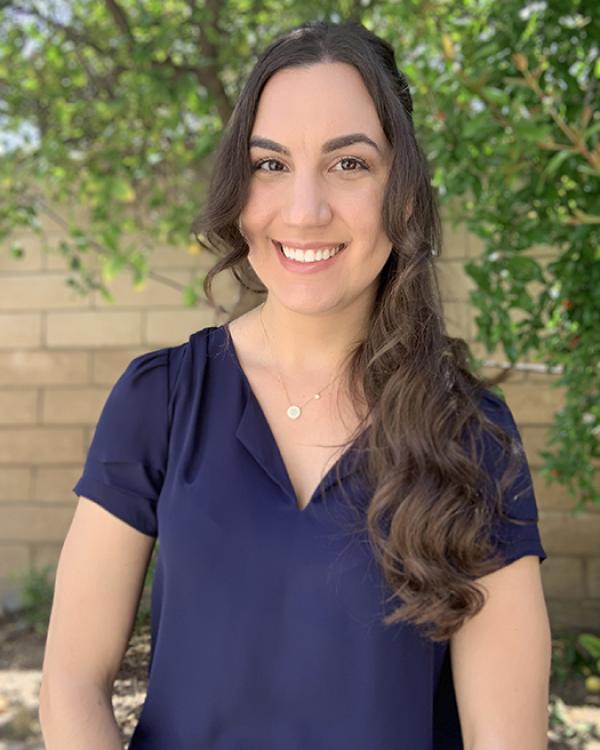
Lindita Djokovic, a doctoral student in the Clinical Psychology emphasis, studies mental disparities among underserved communities (i.e., ethnic minorities), identifying culturally sensitive trauma interventions, and psychosocial responses to collective trauma. When the pandemic struck, she decided to study the effects of living alone during COVID-19. This interview discusses what lead to that project and more.
GGSE: What got you first interested in this study about people who have lived alone during COVID?
Djokovic: I was brought in by Drs. Erika Felix and Miya Barnett to work on this project as a first-year doctoral student in UCSB’s Department of Counseling, Clinical & School Psychology (CCSP). One of my areas of research interest is collective traumas, like COVID-19. In addition to collective traumas, I have always been interested in studying populations that often do not get the much-needed recognition in our field. When the idea was brought to me to have me assist with this study in particular, I was intrigued. I had not thought about it before, as someone who has lived with others throughout the pandemic, but upon further research and discussion I realized how incredibly important it was to get a better understanding of the experience and needs of those who have lived alone during the pandemic.
GGSE: Has there been much research in this area yet? If so, how does your project fit in with that existing work?
Djokovic: Individuals who are living alone, which are single-person households according to the U.S. Census, have different experiences and contend with unique stressors during a pandemic that have to date only received limited acknowledgment. While there has been work done on how loneliness, social isolation, and other experiences related to being alone have negative effects on an individual’s mental health and well-being, not much has been done regarding the pandemic-specifically. Our study intends to use a qualitative approach (through research focus groups) because this area is still in need of thorough exploration to understand the unknown experiences of those who lived alone. Not only that, but our study is also considering the public health guidance (or lack thereof) that individuals may have referred to or liked to have to help them during this period of being alone in a way unlike before.
Public health mandates, which have varied in strictness over the past year, had asked individuals to shelter-in-place and to only socialize in person with people within your household, without accounting for those living alone. A lot of the guidance and empirical literature published in the field thus far has been focused other groups of people or occupations like healthcare (essential) workers, teachers and students, parents and children, and so on. While all vulnerable populations for their own unique reasons, we believe the experiences of those individuals who lived alone over the course of the pandemic also need to be further studied and considered.
GGSE: What do you hope to learn from this research?
Djokovic: The overall aim of this study is to understand how individuals who were living alone at any time during the pandemic adapted to the pandemic and the varying public health guidance over time.
We decided to conduct online research focus groups and keep the questions fairly open-ended because we understand that many Americans have had differing experiences during these past two years, especially considering the range in public health guidance (i.e., social distance and masking protocols) across the country.
The goal is to improve public health guidance in pandemics by providing evidence-informed recommendations that can work for those that live alone.
GGSE: How does the project connect with your other research interests in CCSP?
Djokovic: I have always had an interest in understanding trauma; however, it was not until a couple years ago that I began to solidify what area of trauma research interested me most. I would really like to explore the psychosocial responses of collective trauma. In addition, I am also currently interested in someday studying culturally-sensitive trauma interventions. While I did not have an exact population in mind coming into CCSP, I knew that I wanted to be a part of research with populations who were underserved and vulnerable to more adverse responses than the norm.
GGSE: What made you choose to come to the GGSE?
Djokovic: I will answer this in three parts:
1. The research being done (both in my lab and in others around the CCSP program) really caught my eye. I knew I wanted to have the opportunity to be a part of a research community that was really working on supporting underserved communities.
2. My advisor Dr. Erika Felix’s work fascinated me and increased my desire to come to GGSE. I had looked into her work on disaster mental health, especially the psychosocial responses to collective traumas, and realized that a lot of the knowledge I hope to gain and work I want to expand on could really be supported with her mentorship.
3. Finally, UCSB’s attention to diverse communities stood out to me and emphasized how I could provide empathy from my own upbringing towards UC Santa Barbara’s community endeavors too. I noticed GGSE/CCSP was different compared to other programs in their attention to diversity, and as an Albanian Muslim American, this really appealed to me. The Albanian community, like many other communities who have faced and overcome adversity, is close to my heart and I would like to see more of us represented in the field of psychology (both in the working population and in the research conducted). It is my hope that in my time here in CCSP’s Ph.D. program that I can be one step forward in these types and areas of gaps in our field.